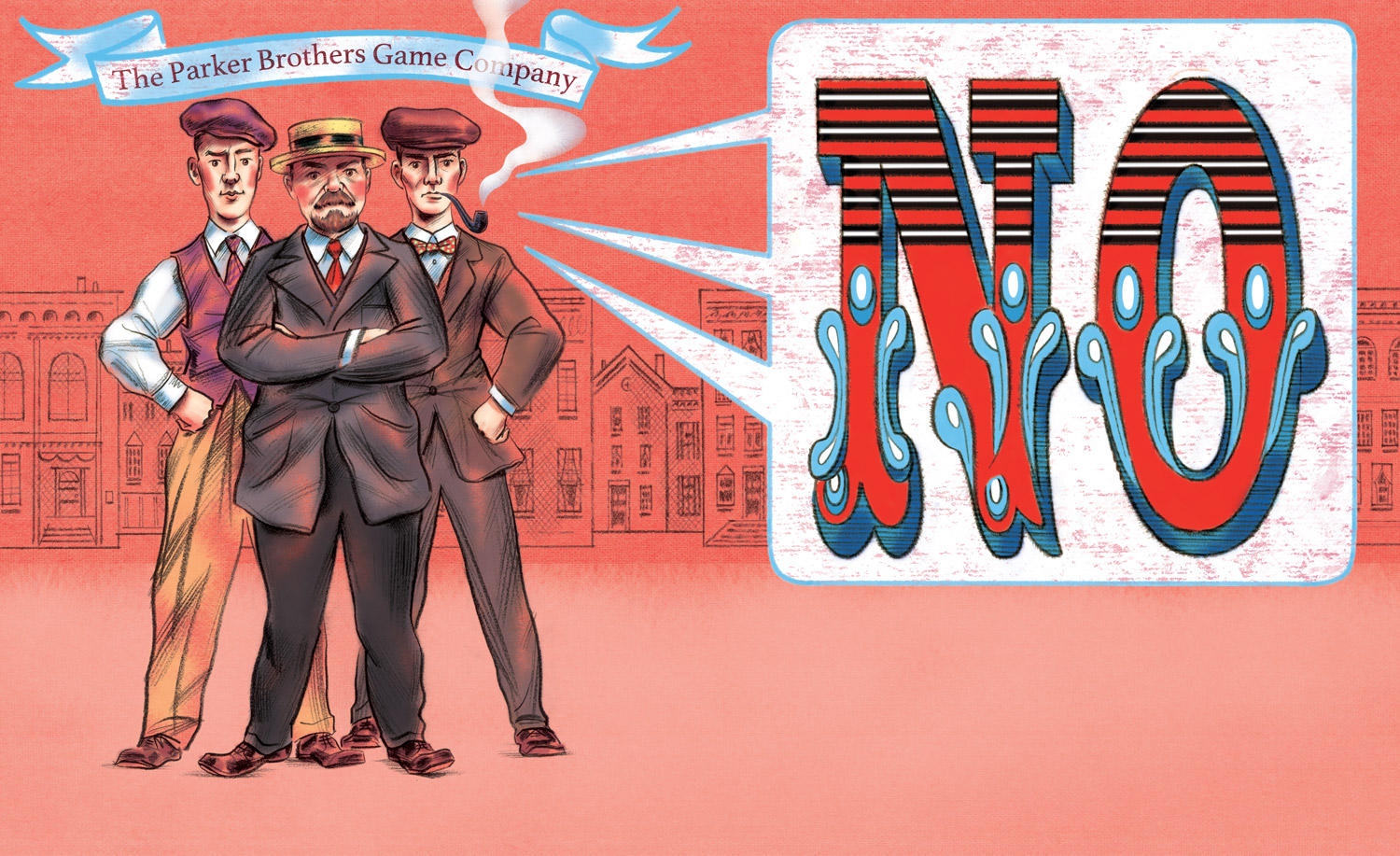

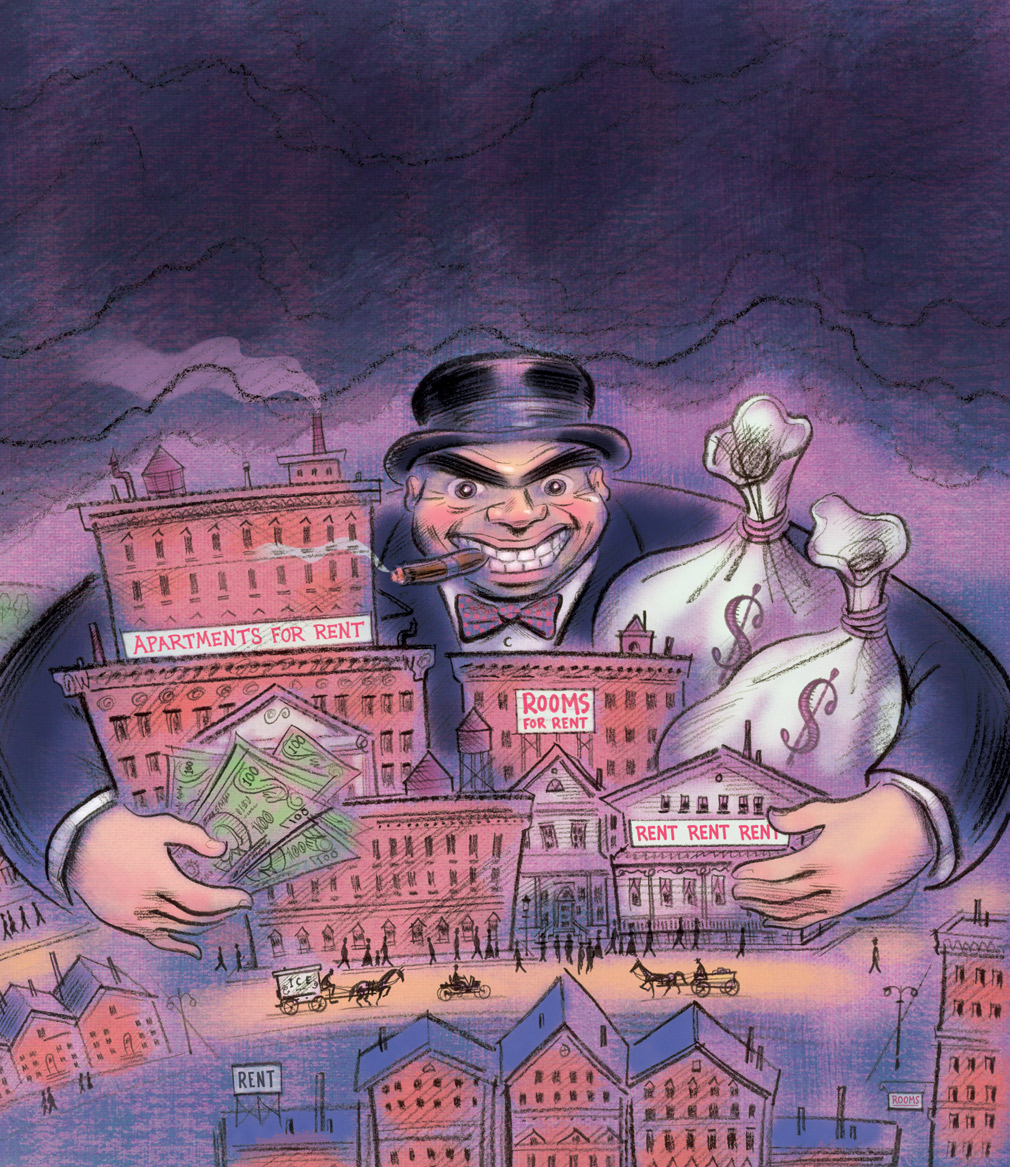
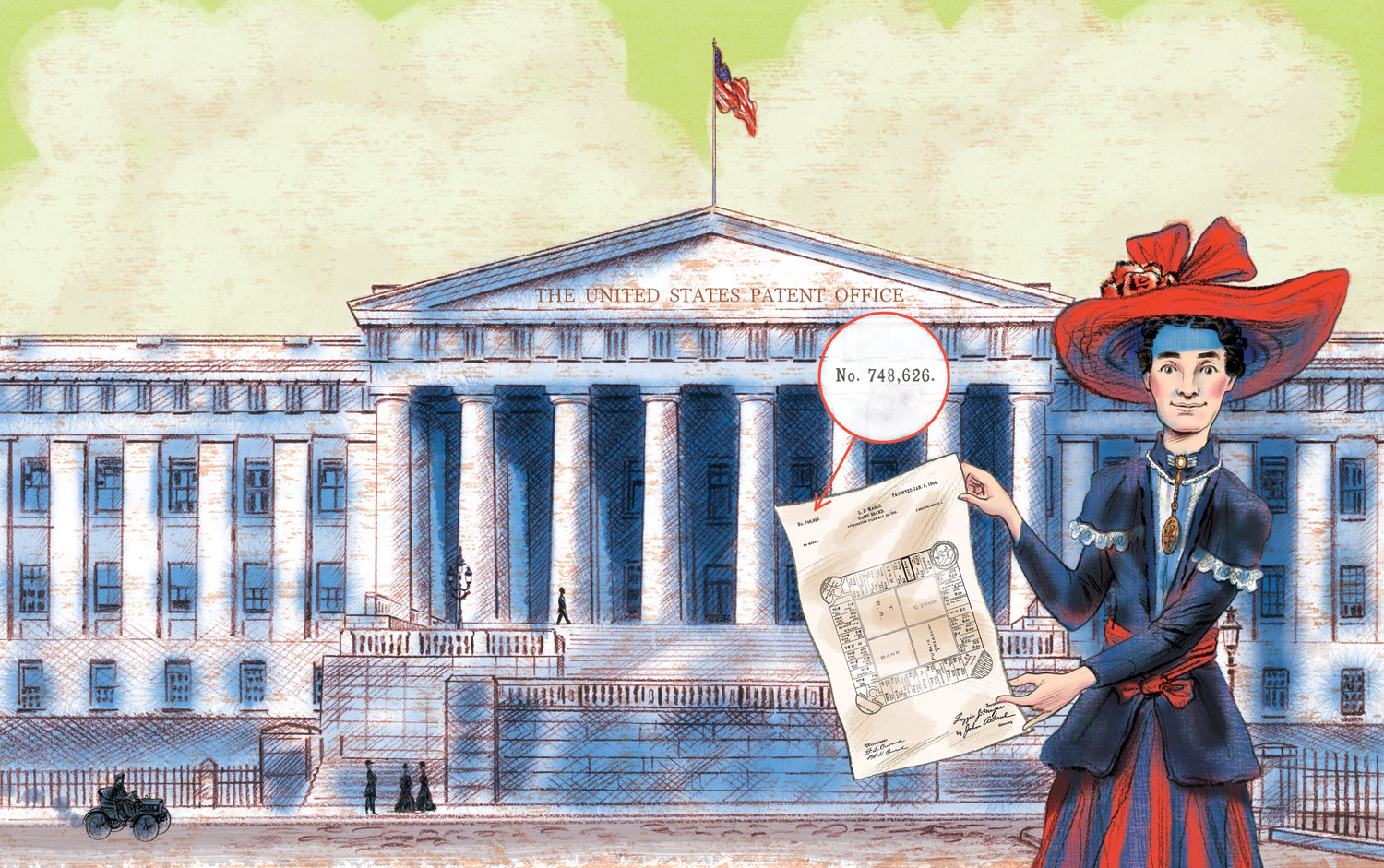
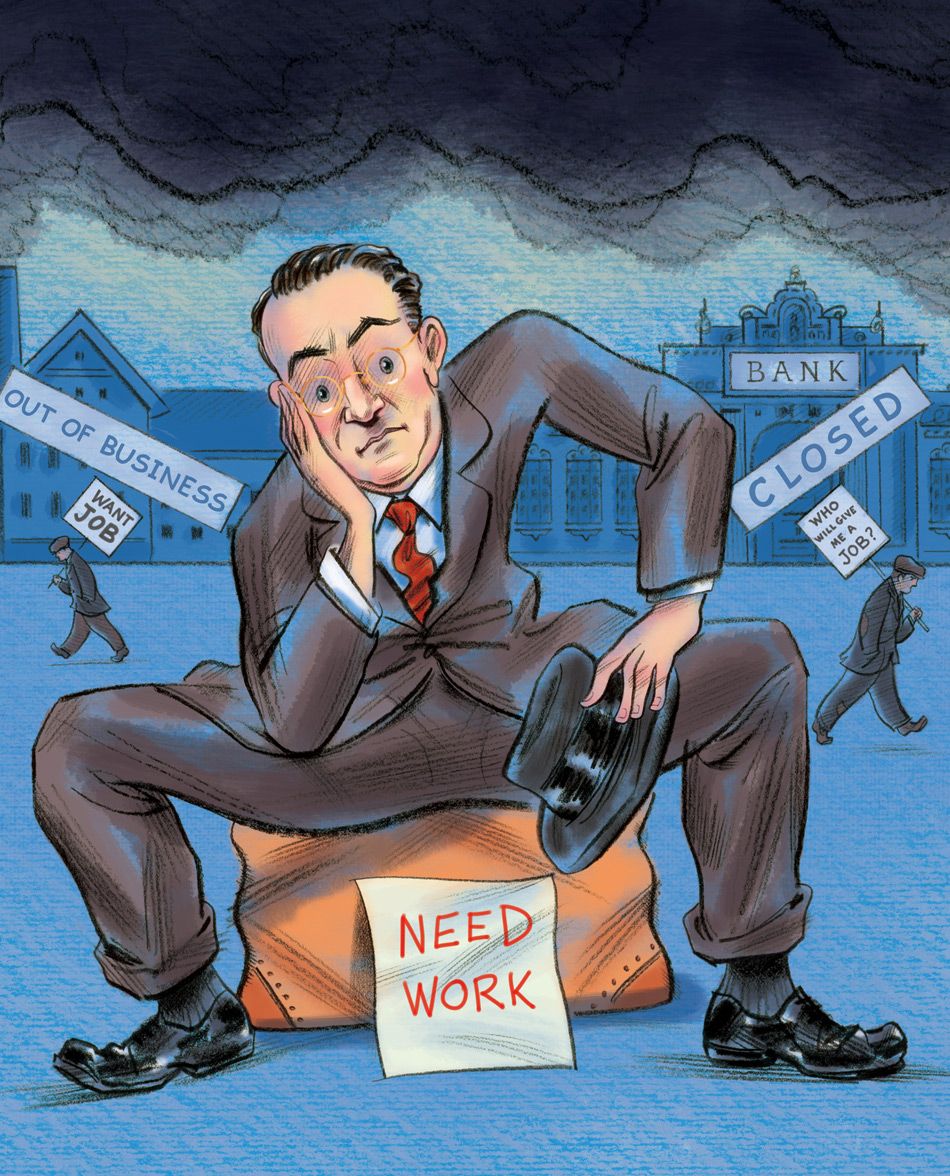
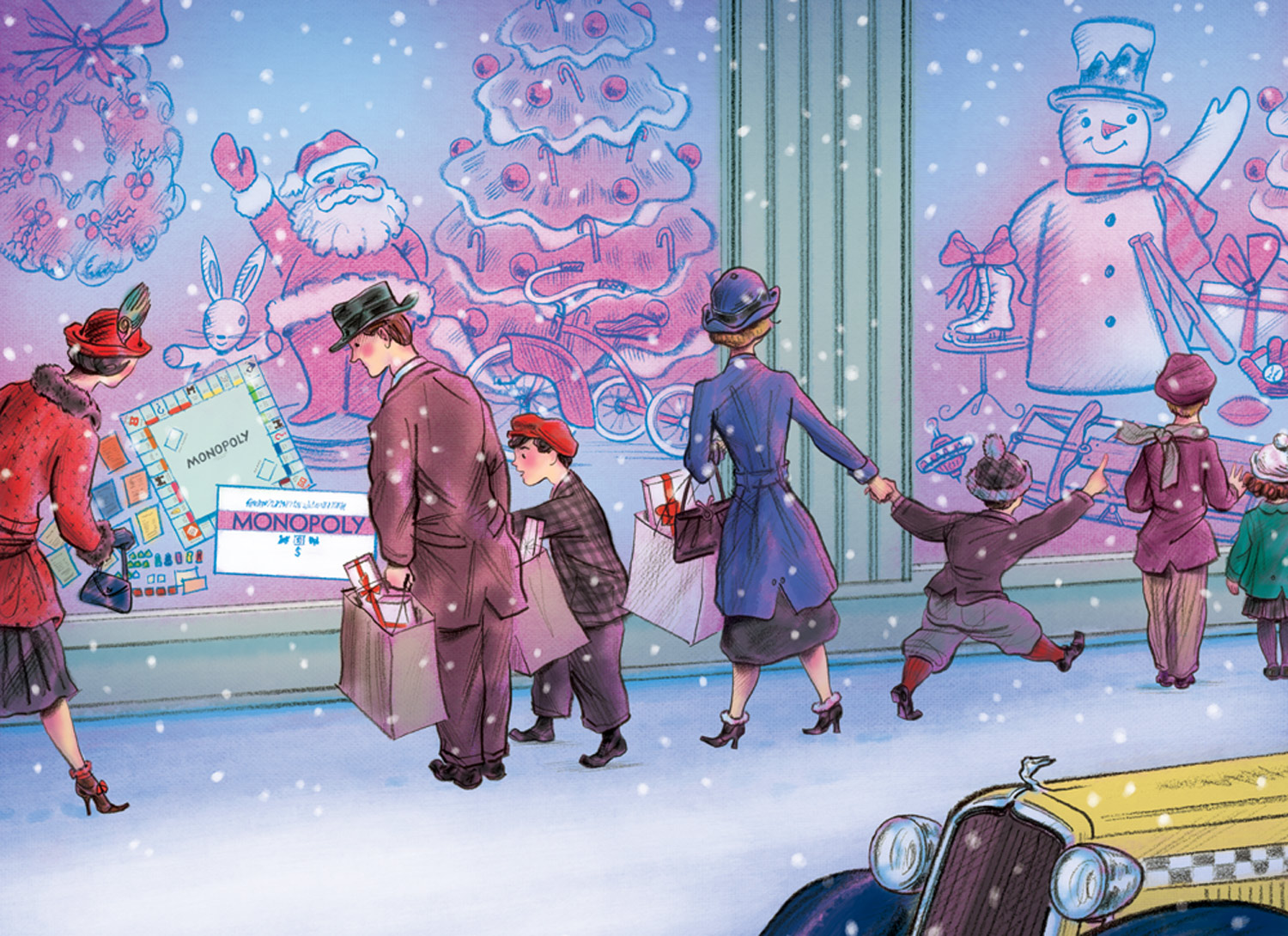
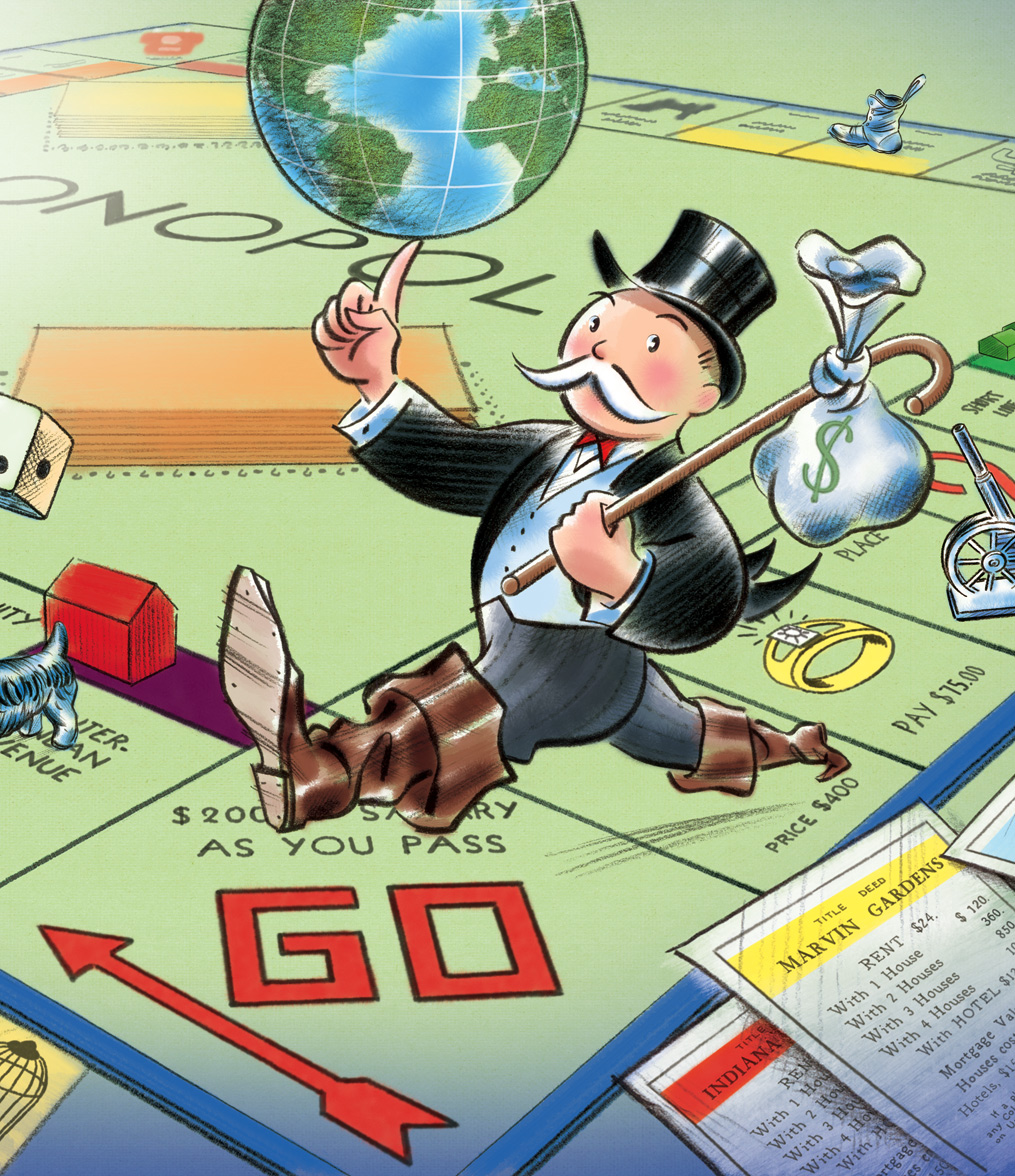

click upper right corner of images to enlarge
above: The Parker Brothers game company rejecting Liz Magie’s early version of MONOPOLY, named “The Landlord’s Game,” with a big NO.
PASS GO and Collect $200 -The Real Story of How Monopoly Was Invented -written by Tanya Lee Stone & illustrated by Steven Salerno published by Christy Ottaviano Books, 2018.
The true story of how one of the most popular board games ever was created. It was conceived of by Elizabeth Magie and patented in 1904, the very first patent issued for a board game. Initially her early game was entitled “The Landlord’s Game,” but it never caught on. It wasn’t until 1934 when an out of work salesman, Charles Darrow created his own version by modifying the rules, the graphics, and changed the name to MONOPOLY that it became incredibly popular with the public.
"A real winner" -The Horn Book
"Salerno’s soft, dynamic full-bleed illustrations reflect yet move beyond the aesthetics of the game and time period, making every page compelling and fresh” -Kirkus Reviews STARRED REVIEW
“Salerno’s vivid illustrations are kinetic and play upon the most exciting elements of the story. Characters move with fluidity” -School Library Journal STARRED REVIEW
"A brisk narrative pace propels the story …Salerno’s lively, mixed-media illustrations carry the action forward" -Publishers Weekly
"Stone is a deft hand at balancing historical absurdities with important social themes, and here her picture book format invites middle-grade readers to benefit from a lesson in entrepreneurship, even as they enjoy amassing trivia surrounding a familiar game. Salerno’s retro illustrations recreate the milieu" -The Bulletin
-A Mathical Book Prize Honor Book 2021
-A Junior Library Guild GOLD STANDARD Selection 2018
-A NCTE Orbis Pictus Award Honor Book 2019
-A Texas Bluebonnet Award Master List 2020-2021
-A Chicago Public Library Best Non-Fiction Picture Book List 2018
-A NCSS-CBC Notable Social Studies Trade Book for Young People 2018
-A Kirkus Reviews Best Books of the Year
-A MRLS Cream of the Crop 2019
-An Amazon Best Book of the Month
-A CCBC Choices: Historical People, Places, Events
-An ALSC Notable Title
-An ALSC Notable Children’s Book
-A NCTE Orbus Pictus Award Honor Book
-A Detectives Best Nonfiction 2018
-A Capitol Choices: Noteworthy Books for Children and Teens 2019

click upper right corner of images to enlarge
above: cover of PASS GO And Collect $200 -depicting family and friends playing Lizze Magie’s 1906 board game The Landlord’s Game -which was the precursor to MONOPOLY
-A Junior Library Guild GOLD STANDARD Selection 2018
see Steven’s complete list of published picture books to date

click upper right corner of images to enlarge
above: After the Civil War many people living in rural areas began flocking to the cities, creating a boom in the demand for housing and apartments which in turn created Landlords -many becoming wealthy. Lizzie Magie created her Landlord’s Game to bring awareness to the plight of many poor people subject to unscrupulous landlords.

click upper right corner of images to enlarge
above: Elizabeth Magie in 1904 outside the United States Patent Office holding her patent, the first one ever issued for a board game.

click upper right corner of images to enlarge
above: cropped view of illustration depicting Charles Darrow, the out-of-work salesman during the Great Depression who contributed the streamlining changes to Lizzie Magie’s initial board game -which lead to the ultimate success of MONOPOLY

click upper right corner of images to enlarge
above: holiday shoppers in 1932 looking at Charles Darrow’s version of MONOPOLY, which in 1935 began distribution by The Parker Brothers Game Company.

click upper right corner of images to enlarge
above: detail view of the game’s character, Rich Uncle Pennybags -who eventually became better known as Mr Monopoly.